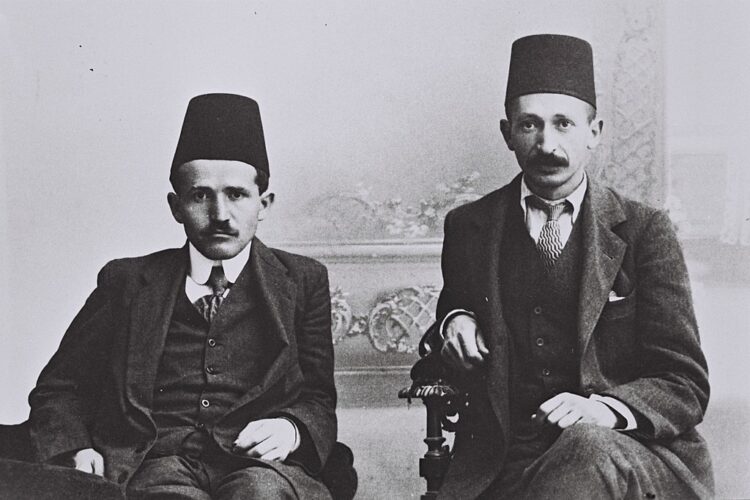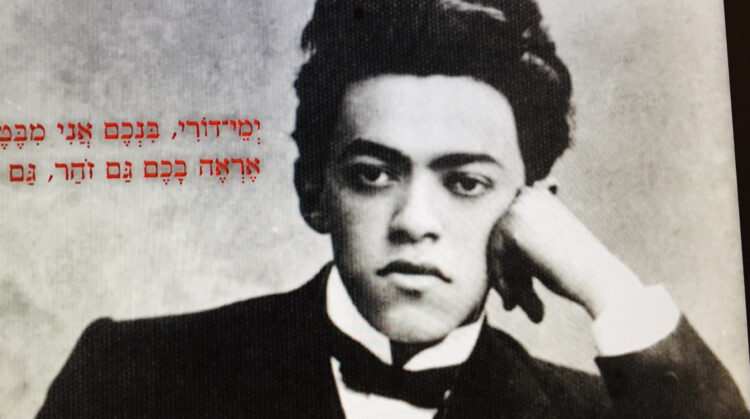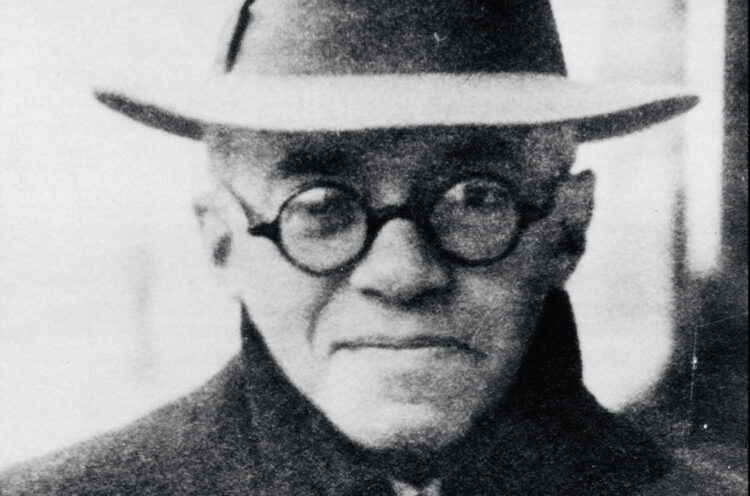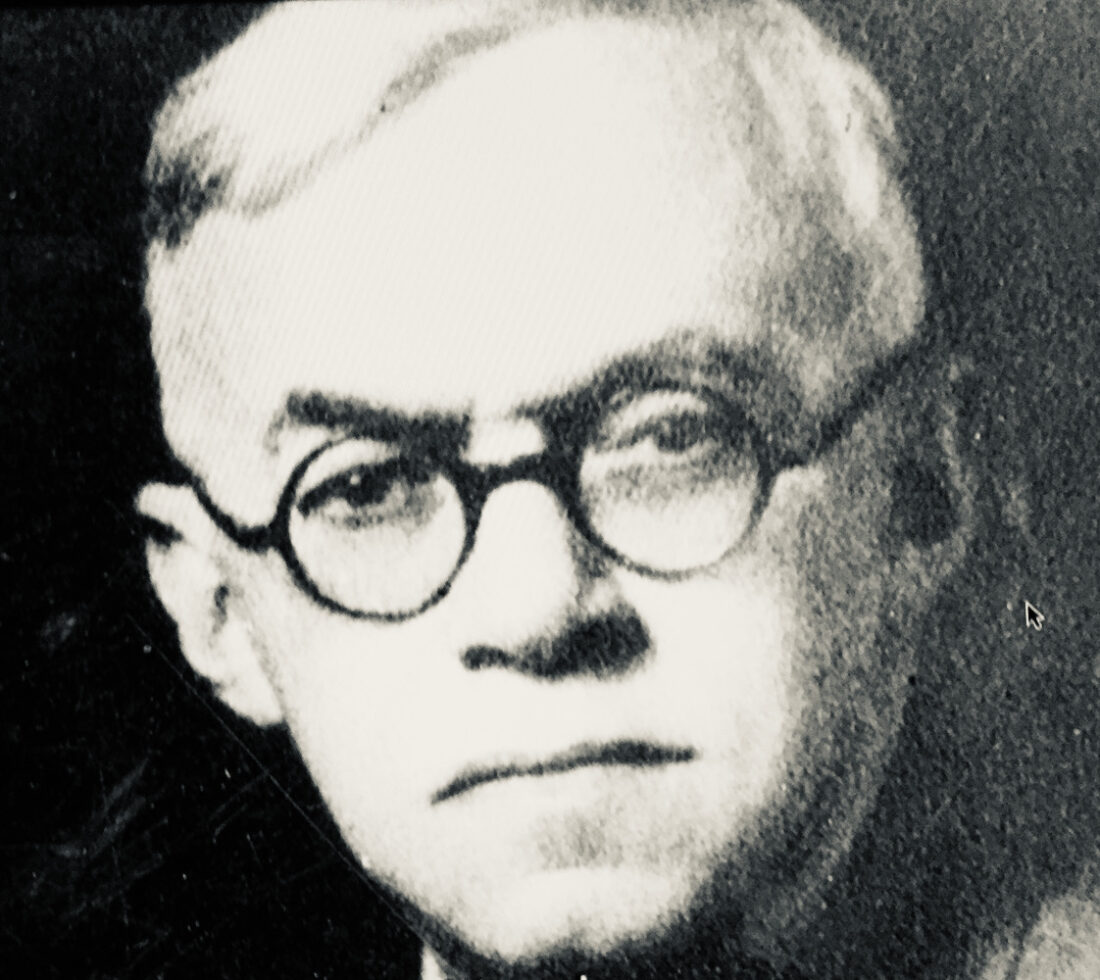Vladimir Ze’ev Jabotinsky was one of the titans of the Zionist movement, yet his residency in Palestine, the ancestral homeland of the Jewish people, was extremely brief.
A cosmopolitan Russian Jew fluent in nine languages, he was both a political theoretician and organizer, as well as a man of letters. During his life, he oscillated between these poles.
He was the founder of the right-wing Zionist Revisionist movement, which spawned the Herut Party, the forerunner of the current Likud Party, whose leaders have been Menachem Begin, Yitzhak Shamir, Ariel Sharon and Benjamin Netanyahu.
An advocate of a sovereign Jewish state on both sides of the Jordan River, he believed that its Arab citizens should be entitled to equal rights. And though he worked with Britain to free Palestine of Ottoman Turkish rule, he clashed fiercely with Labor Zionists, such as Chaim Weizmann and David Ben-Gurion, over the controversial issue of Zionist cooperation with the British authorities in Mandate Palestine.

As a journalist, he wrote about politics and culture. As an author, he published two novels, Samson the Nazarite and The Five. And as a translator, he was the first to render Edgar Allan Poe’s poems, including The Raven, into Hebrew.
In her fascinating one-hour biopic, The Raven, which was released in 2015, Ayelet Ofarim touches on all these elements and more. It is currently being screened online by the Toronto Jewish Film Foundation.
Born in 1880 into an assimilated family in Odessa, Jabotinsky dropped out of high school at 17 and began writing for a local Russian newspaper. He then spent three years in Rome studying law, but never graduated. What he learned in Italy was Western culture, which shaped him tremendously.

Ofarim glosses over this period, but notes that he encountered insular shtetl Jews for the first time en route by train from Italy to Russia.
Jumping to World War I, she credits him with having formed the Jewish Legion to assist Britain in the defeat of the Ottoman Empire in its colony in Palestine. By then, Jabotinsky was a seasoned Zionist, having attended one of the first Zionist congresses convened by Theodor Herzl, the founder of modern political Zionism.
Although he fervently believed that Palestine belonged to the Jewish people, he maintained that it would always be home to two nations, the Jews and the Palestinian Arabs.
Incurring the wrath of the British by his involvement in the formation of Jewish self-defence units in Palestine, Jabotinsky was arrested, only to be set free shortly afterward. Jabotinsky, however, was forced to pay a heavy penalty for his activism. He was banned from ever setting foot in Palestine again.
He founded the Betar youth movement, whose military uniforms and martial spirit bore an unsettling resemblance to those of fascist Italy. He was revered by its recruits, most of whom were Polish and Latvian Jews, but he claimed he loathed the cult of the personality.
Constantly on the move, he practically lived on trains. His long-suffering wife, Joanna, yearned for a normal life and wanted him by her side, but this was not to be.
Jabotinsky made two attempts to settle in Palestine, but they failed. Unfortunately, Ofarim leaves out the details. She points out that he did not care for the spartan lifestyle of its Zionist pioneers, and that he was of the opinion that there was an absence of high culture in Palestine. Not surprisingly, Jabotinsky — an aficionado of European cafe society — chose Paris as his home base.
Forbidden to enter Palestine, he focused on turning himself into a leader of Jews in Eastern Europe, particularly in Poland, where his admirers ran into the hundreds of thousands.
Ofarim claims he missed a “historic opportunity” to succeed Weizmann as the Zionist leader, but she does not elaborate.
Jabotinsky argued that Polish, Latvian, Romanian and Hungarian Jews should be brought to Palestine in waves to avert a future catastrophe. He sensed that deep-seated antisemitism in these countries threatened their very existence.

Tragically, he was unable to activate his plan because the British, keen on appeasing the majority Arab population, were intent on limiting Jewish immigration to Palestine and would not provide more than a token number of entry certificates to Zionist Revisionists.
Like Herzl, Jabotinsky died prematurely, exhausted by his hellish work ethic. He collapsed on August 3, 1940 while visiting a Betar camp in Hunter, New York. He was buried in the United States, but his remains were transferred to Mount Herzl, in western Jerusalem, in 1964 on the orders of Prime Minister Levi Eshkol, a Labor Zionist.
As Ofarim suggests, Jabotinsky was an outlier, yet his contribution to the Zionist project cannot be underestimated.
